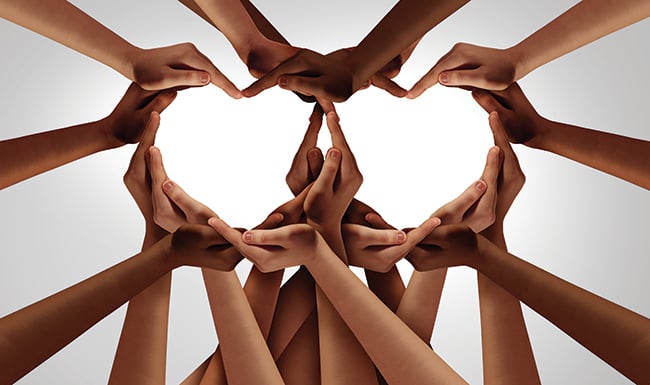 Source: AdobeStock
Source: AdobeStock
According to research done by RiskIQ, there are conservatively 8.9 million mobile apps available to download for the more than five billion smartphone users in the world. And when it comes to mobile banking apps, minorities are much more likely to use them than white people.
Multiple surveys over the past few years revealed 50% of Black people used a mobile banking app in the past 12 months, while only 37% of white people used one. Nearly 70% of Black mobile phone users download and update apps on a monthly basis. The same survey found 60% of white users do the same.
Recommended For You
Regular surveys done by Pew Research Center since 2010 have consistently shown that Blacks and Latinos use their smartphones to conduct their banking more than any other race or ethnicity. The Federal Reserve Board backed up those findings with its own reporting that found "a disproportionately high rate" of Blacks and Latinos are mobile banking users.
While mobile banking app adoption and usage rates are high among minorities, Federal Reserve data showed in 2019 that 14% of Black households and 12% of Latinos in the United States were unbanked. For white households, that number was 2.5%.
The Federal Reserve's survey also found that about 34% of the total number of credit union members are minorities. Of that number, only 17% are Black.
So, some questions evolve out of the consistent research and survey findings: Are credit unions focused on these facts about minorities within the mobile banking population? And who are credit unions marketing their mobile banking apps to?
In April, the $1.7 billion Unitus Community Credit Union in Portland, Ore., announced it had launched a new project that is attempting to not only focus on the Black mobile banking user, but aims to develop and better serve Black members and potential members with a new mobile app it's currently building through a partnership involving a minority-owned fintech provider and a local non-profit.
 Megan Snyder
Megan Snyder Unitus Assistant Vice President of Strategic Partnerships Megan Snyder explained that the credit union has committed money and resources to get this project off the ground, as well as a plan to ensure it is sustainable for years to come.
"We know that data tells us that our Black community here in Oregon and nationally is one of the most underserved and unbanked community," she said. "And as a financial institution and community partner, that data point's not acceptable. So we raised our hand to say, 'We want to change this!' and we've utilized the Urban League's feedback to do that."
In conjunction with the Urban League of Portland, Unitus announced its partnership with FTSI, a minority-owned company that is the largest independent provider of custom digital and branch solutions. FTSI's development of the mobile app supports the Financial Empowerment Collaborative (FEC), which is a new pilot program that has a goal of fostering financial empowerment in Portland's Black community, and provides solid pathways for participants on their path to financial and housing stability and wealth creation.
The mobile app development funding comes from a $50,000 grant Unitus received from the NCUA's Community Development Revolving Loan Fund Program, which grants funds to expand outreach to underserved communities while improving digital services and security.
Unitus has combined the $50,000 grant into its $250,000 commitment to fund the $300,000 project. According to Snyder, that money is just for the build and launch of the app. More money will be dedicated to fund app updates and new add-ons in the future.
While Unitus is spearheading the efforts to launch the new mobile app, it is approaching the project with numerous local partners and area credit unions.
Unitus has connected with the FEC's pilot program, in conjunction with the Urban League of Portland, to provide financial products, services and educational materials to Black Oregonians. The Clackamas, Ore.-based Advantis Credit Union ($2 billion in assets, 85,672 members), Portland-based Consolidated Community Credit Union ($487 million in assets, 20,499 members), Portland-based Point West Credit Union ($113 million in assets, 8,993 members), Beaverton, Ore.-based Rivermark Community Credit Union ($1.3 billion in assets, 88,292 members) and Northwest Credit Union Foundation are all partners in the project.
As Snyder put it, unbanked people often use non-traditional methods to access their money, including cashing checks for a fee at a retailer or using payday loans. The new mobile app introduces Black Oregonians to financial services, connecting them to the credit union that best aligns with their needs. This inclusive process is designed to foster financial and housing stability while creating and sustaining generational wealth.
"We wanted to find a way to effectively meet the community members where they're at, when they needed it," Snyder said. "As we worked as a collaborative effort – there's five credit unions supporting the Urban League – we found that having an effective solution for the client that was user friendly, without intimidation [to be valuable], right? It can be quite overwhelming to enter a credit union's website or try and navigate financial services. So how can we effectively connect with them and meet their needs to help support them along their journey to financial wellness?"
Urban League Director of Housing Programs Denetta Antoinette Monk said this partnership grew out of discussions among Portland-area credit unions eager to find opportunities to create tangible positive community impact in the wake of racial justice protests that shook the city in 2020.
"The Urban League of Portland is excited to be a part of a partnership with local credit unions to empower and increase financial education and resources to our community," Antoinette Monk said. "Launching a Financial Empowerment Collaborative is a strategic step towards accomplishing Urban League's mission to empowering African-Americans and others to achieve equality in education, employment, health, economic security and quality of life."
Snyder said after discussions with the local partners about what tools and education needs were available to help break the cycle of habits that impair and create barriers to financial wellness, the mobile app seemed like the best way to combine all of those elements into one.
Snyder said, "We could do so much more for this community, but once you added that variable, we knew that a tool to help support it was going to be important. But more so, we knew that what the Urban League was asking for, what their clients' needs were, [we] had a variety [of options]. It wasn't just financial services. It included education, resources, connection and financial coaching. And so that led us to saying, 'Where can we provide a one stop service?' So those discussions started truly since the beginning of 2021. And as the credit unions came together to meet with the Urban League and heard their needs, that's when we really found the idea of an app would be really a cool thing."
According to Snyder, the app has been mapped out and the credit union should see some of its early designs soon. She indicated that a handful of Unitus staff members are working on this project and she couldn't be more proud of the team, and the credit union's leadership team, who have thrown all their support into making this app a reality.
"It's very exciting! I think that goes back to our culture though and our commitment [to DEI]. I think it takes a lot of courage and leadership to remain true to that commitment because other things get in the way of that, right? You have to balance the day-to-day job. You have to balance the needs of critical measures. So I would say that it has required our leadership to have courage and be willing to invest both time and financial backing into something new," Snyder said.
The app will be available on Apple and Android devices and is expected to go live in August 2022.
"This is something that is a passion project of mine, but one that I think is really important," Snyder added.
© 2025 ALM Global, LLC, All Rights Reserved. Request academic re-use from www.copyright.com. All other uses, submit a request to [email protected]. For more information visit Asset & Logo Licensing.






